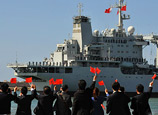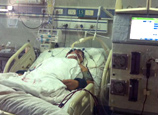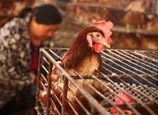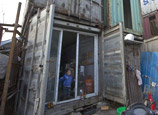
SHANGHAI, April 15 (Xinhua) -- China's economic growth dipped to 7.7 percent in the first quarter, falling short of market expectations and suggesting a continued tepid economic rebound for the world's second-largest economy.
The unexpected slowdown fell short of market expectations of 8-percent growth, and the increase was also lower than the 7.9-percent growth logged in the fourth quarter of 2012.
The Shanghai Composite Stock Index closed 1.13 percent lower at 2181.94 points on Monday, while the Shenzhen Component Stock Index fell 1.15 percent to 8733.44 points.
"Industrial and consumption growth eased surprisingly in the first three months," said Wang Tao, chief China economist with UBS.
However, Wang said economic growth would accelerate in the second quarter amid recovery in consumption and improved liquidity.
Industrial added-value rose 8.9 percent in March, dropping from the 9.9-percent growth seen in the first two months.
"The slower industrial growth indicates slow recovery in demand, and the expected restocking did not happen," said Chang Jian, China economist at Barclays.
Power consumption climbed 2 percent in March, as China continued to grapple with manufacturing overcapacity.
The Chinese government has turned to consumption to re-balance the economy from its reliance on investment, but growth in retail sales slipped to 12.4 percent, down 2.4 percent from the same period last year, as income increases slowed and the new leadership launched an austerity drive.
Fixed-asset investment rose 20.9 percent in the first quarter, flat with the growth marked last year, despite surging credit in the first three months of 2013. Monthly new loans hit 1 trillion yuan (161.54 billion U.S. dollars) in the two months of January and March.
"But some new loans were used to pay interest on local government debts," Wang said.
Export growth tumbled from 25 percent and 21.8 percent in the first two months, respectively, to 10 percent in March.
"Rising downside risks in foreign demand threaten future exports, and such growth in the first quarter is not sustainable," Chang said.
The Chinese economy grew 7.8 percent last year, the lowest level in 13 years. To reverse the decline seen in the first half of last year, regulators have cut interest rates, relaxed credit and launched infrastructure projects since June.
Sheng Laiyun, spokesman for the National Bureau of Statistics, said China's potential productivity is declining, but he noted that the slowed growth would help companies and the government adjust China's growth model.
"China's industrialization, urbanization, agricultural modernization and market reforms will still unleash huge investment potential," Sheng said.
In a recent seminar on macroeconomics, Premier Li Keqiang called for focusing on economic transformation and upgrading through deepened reform.
While effectively coping with short-term problems and maintaining reasonable growth, more efforts should be made to improve the quality and benefits of development, with a focus on promoting economic restructuring and upgrading, expanding employment and increasing people's incomes, he said.
















 Death toll rises to 14 in central China hotel fire
Death toll rises to 14 in central China hotel fire


![]()
